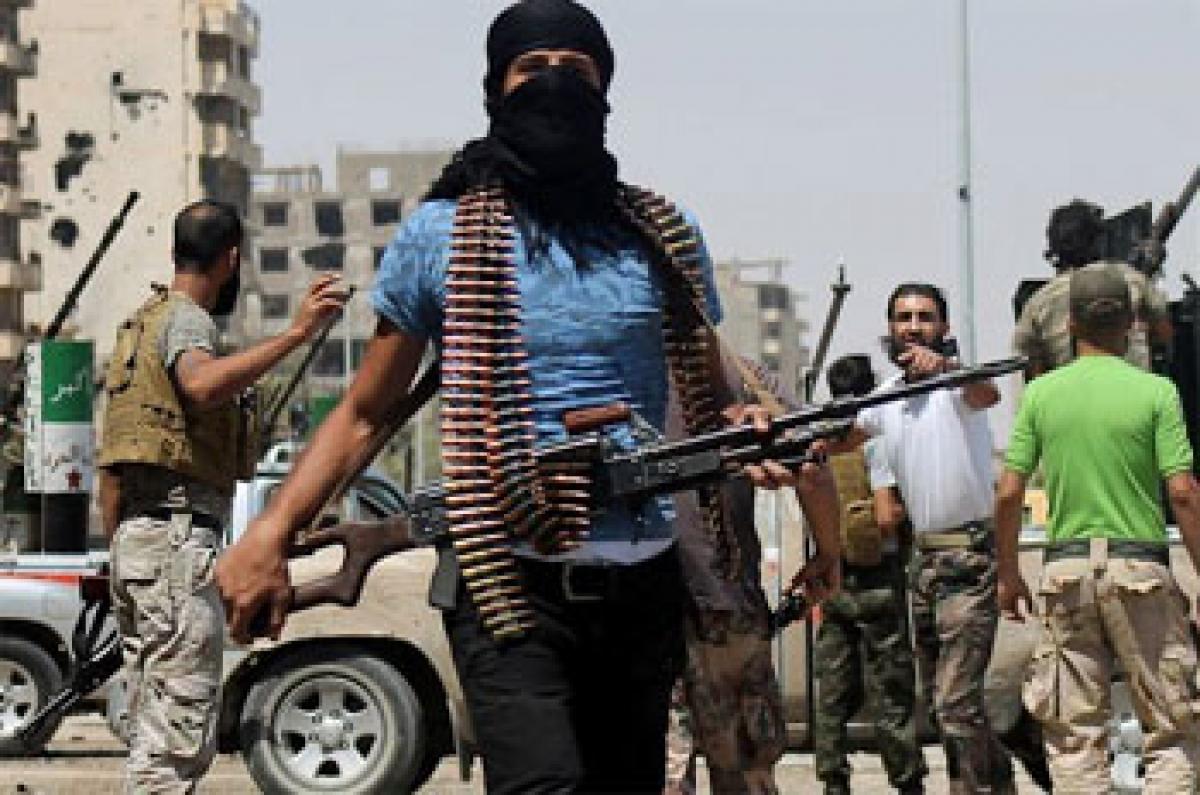Live
- Astronauts Stuck in Space: Sunita Williams and Barry Wilmore's Mission Extended Until February 2025
- 'Muslims don't vote for JD(U)', says Union Minister Lalan Singh
- St. Joseph’s organises literary fest
- Indian GenAI startups see 6 times surge in funding in Q2
- Revanth is a liar: Errabelli
- Big B pens heartfelt note for Abhishek’s work in latest film: You are Arjun Sen
- BGT 2024-25: India on brink of victory in Perth as Australia reach 227/8 at tea
- SC grants 4 weeks more to Centre to decide Balwant Singh Rajoana’s mercy plea
- Lucky for me to end up with PBKS under head coach Ponting: Stoinis
- Students pay the price for govt apathy
Just In

The year 2016 began with a crisis of sorts in world politics. At a time, when efforts to bring back peace to Syria are seen gathering momentum and an anti-IS coalition of 34 nations is being put in place by the Saudis, long-time bitter rivals, Sunnis-led Saudi Arabia and Shia-ruled Iran, are back to dangerous brinkmanship.
The year 2016 began with a crisis of sorts in world politics. At a time, when efforts to bring back peace to Syria are seen gathering momentum and an anti-IS coalition of 34 nations is being put in place by the Saudis, long-time bitter rivals, Sunnis-led Saudi Arabia and Shia-ruled Iran, are back to dangerous brinkmanship.
The simmering but latent rivalry for over three decades exploded on Saturday last when Saudis executed a top Shia cleric, Sheik Nimr al-Nimr. It triggered violent outbursts in Teheran and burning down of a part of Saudi consulate. Not one to brook any Shia violence, Saudi severed all ties with Iran; its allies in the Gulf and elsewhere are also acting against Iran.
Sunni countries allege Iran’s ‘flagrant support to Shia uprising’ in Iraq, Yemen, Lebanon and Syria. The oil-rich Saudis claim thus being forced to rally allies to keep Sunni flag aloft – the result is endless bloodshed in those countries, besides economic upheaval and utter poverty.It is a kind of supercharged situation with an atmosphere of deep distrust in the Middle East now.
Its escalation would plunge the region into further chaos, and precipitate downturn in global economy which is already grappling with monetary tightening and rate hike in the US, migrant and debt crises in Europe, doubts over China’s financial stability, and fragility of emerging economies.Obama in a historic move, unheeding the pleas of long-time Sunni allies like Saudi Arabia, reached out to Iran last year and struck a nuclear peace deal, which led to lifting of crippling sanctions against Iran.
The US ignored Saudi protests that Iran would use its freed assets to foment trouble in Sunnis-dominated nations. Later, despite the latest ballistic missile tests by Iran, the US has refrained from any punitive action. Russia, which is back on world centre-stage with an offer of peace mediation in Syria and help to anti-IS coalition, has expectedly stepped forward to defuse the situation. China has followed suit.
It is time for action by the UN, too. Its role is crucial more than ever, in view of rapidly rising tensions. Global focus may shift from peace efforts in Syria and Yemen as well as the fight against the deadly terrorist force of IS.
India needs to watch the situation carefully. Both Iran and Saudi Arabia have warm and cordial ties with it. It can’t afford to antagonise either. Historic crude oil prices have helped it keep current account and fiscal deficits on the leash, which means no spending cuts for social welfare programmes this year.
But, oil prices have already started looking up from their 11-year low of $35 a barrel. In the absence of sanctions, Iran would be adding about 4 lakh barrels a day to the already over surplus oil market, keeping down the prices. So, it is in the best interests of all nations, especially poor and developing, to help calm the bitter rivals and bring about normalcy in the Middle East region.

© 2024 Hyderabad Media House Limited/The Hans India. All rights reserved. Powered by hocalwire.com







